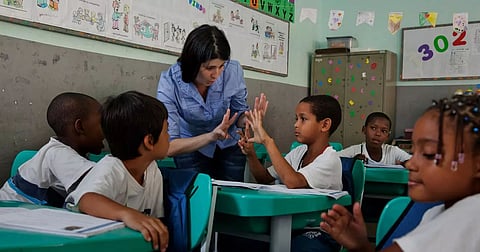
- Home
- Live Blog
- Breaking News
- Top Headlines
- Cities
- NE News
- Sentinel Media
- Sports
- Education
- Jobs

Ranjan K Baruah
(With direct inputs from UN/WHO publication and feedback may be sent to bkranjan@gmail.com)
We have heard the term autism and it is a challenge for many who have autism or autism spectrum disorder which constitutes a diverse group of conditions related to the development of the brain. It is a lifelong neurological condition that manifests during early childhood, irrespective of gender, race or socioeconomic status. The term Autism Spectrum refers to a range of characteristics. We should know that globally about one in 100 children has autism. Though it is a challenge, evidence-based psychosocial interventions can improve communication and social skills, with a positive impact on the well-being and quality of life of both autistic people and their caregivers.
There is no doubt that over the past decade, major progress has been made towards increasing access to education generally, as well as for persons with autism specifically. The recent pandemic has brought more challenges as schools were closed which impacted students all over the world. Many students with autism have been especially hard hit and studies show that they have been disproportionately affected by disruptions to routines, as well as services and supports that they rely on.
The 17 Sustainable Development Goals adopted by world leaders at the United Nations in 2015 provide a blueprint for addressing the major challenges facing the world, including inequality. The specific targets for SDG 4 refer to the need to ensure "equal access to all levels of education and vocational training" for persons with disabilities and to build and upgrade education facilities that are disability sensitive and that provide "inclusive and effective learning environments for all."
Throughout its history, the United Nations family has celebrated diversity and promoted the rights and well-being of persons with disabilities, including learning differences and developmental disabilities. In 2008, the Convention on the Rights of Persons with Disabilities entered into force, reaffirming the fundamental principle of universal human rights for all. The United Nations General Assembly unanimously declared 2 April as World Autism Awareness Day (A/RES/62/139) to highlight the need to help improve the quality of life of those with autism so they can lead full and meaningful lives as an integral part of society.
This year's observance will address inclusive education in the context of SDG 4 - the promise and reality - through a virtual event that will include a moderated panel discussion, along with brief presentations by self-advocate, educators and other experts.
António Guterres, the Secretary-General of the United Nations in his messages said that "the solution lies in more community-based support systems for persons with autism. We must also establish inclusive education systems and training programmes that enable students with autism to access the educational path of their choice. And we must make technology solutions available for persons with autism to live independently in their communities. Active consultation with persons with disabilities and their representative organizations should be at the centre of these efforts." "On this World Autism Awareness Day, let us reaffirm our commitment to an inclusive, equitable and sustainable world for persons with autism," he further said.
Early intervention and constant care would help children with autism. All of us must take action to ensure that no one is left behind when it comes to education and more importantly quality education for the person having challenges due to autism. Let us make an inclusive society where everyone gets their human rights.